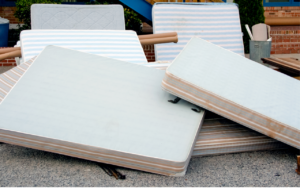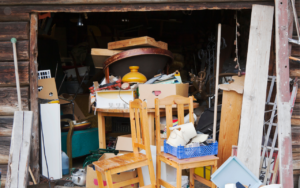Mastering junk removal can transform your living space into a haven of tranquility and order, providing peace of mind and enhancing your quality of life. Here’s a comprehensive guide to achieving this transformation.
The Psychological Impact of Clutter
Clutter can have a significant psychological impact, contributing to feelings of stress, anxiety, and overwhelm. Studies have shown that disorganized spaces can make it difficult to focus, decrease productivity, and even affect sleep quality. On the other hand, a clean, organized environment promotes relaxation and a sense of control.
Benefits of Junk Removal
1. Reduces Stress: A clutter-free home reduces visual distractions and chaos, which can help lower stress levels. When your surroundings are orderly, you’re more likely to feel calm and in control.
2. Improves Focus and Productivity: An organized space allows you to concentrate better and work more efficiently. Whether it’s a clean desk in your home office or a tidy kitchen, reducing clutter can boost your productivity.
3. Enhances Well-being: Decluttering can be a therapeutic process, providing a sense of accomplishment and clarity. It can also improve your overall well-being by creating a more comfortable and enjoyable living environment.
4. Promotes Better Sleep: A clutter-free bedroom promotes better sleep by creating a serene and relaxing atmosphere. When your bedroom is free from distractions, it’s easier to unwind and get a good night’s rest.
Steps to Master Junk Removal
1. Plan Your Approach: Start with a clear plan. Decide which areas of your home need attention and set realistic goals. Break the process into manageable steps to avoid feeling overwhelmed.
2. Sort and Categorize: Begin by sorting your belongings into categories: keep, donate, sell, recycle, and discard. Be honest with yourself about what you truly need and use. Items that haven’t been used in the past year are good candidates for removal.
3. Tackle One Room at a Time: Focus on one room at a time to make the process more manageable. Start with less sentimental areas like the kitchen or bathroom, and gradually move to more personal spaces like bedrooms and living rooms.
4. Dispose of Junk Responsibly: Proper disposal is crucial. Donate usable items to local charities or shelters. Recycle materials like paper, plastic, and electronics. For hazardous waste, such as batteries or chemicals, follow your local municipality’s guidelines for safe disposal.
5. Consider Professional Help: If the task feels too daunting, consider hiring a professional junk removal service. These experts can efficiently handle large volumes of junk, ensuring proper disposal and often donating usable items to those in need.
Tips for Maintaining a Clutter-Free Home
1. Adopt a Minimalist Mindset: Embrace minimalism by keeping only what you need and love. This approach reduces the amount of clutter that can accumulate over time and makes your home feel more spacious and serene.
2. Regular Decluttering: Make decluttering a regular habit. Set aside time each month to assess your belongings and remove anything unnecessary. Regular maintenance prevents clutter from building up and makes the process less overwhelming.
3. Smart Storage Solutions: Invest in smart storage solutions to keep your home organized. Use shelves, bins, and baskets to store items neatly. Consider multi-functional furniture, such as ottomans with hidden storage or beds with built-in drawers.
4. One In, One Out Rule: Implement the “one in, one out” rule. For every new item you bring into your home, remove an old one. This prevents accumulation and encourages thoughtful purchasing decisions.
5. Digital Decluttering: Don’t forget about digital clutter. Regularly clean out your email inbox, delete unused apps, and organize your digital files. A streamlined digital life complements a tidy physical space.
The Emotional Journey of Decluttering
Decluttering can be an emotional journey, especially when dealing with sentimental items. It’s important to give yourself time and patience during this process. Here are some tips to help navigate the emotional aspects of junk removal:
1. Start Small: Begin with less emotionally charged items to build momentum and confidence. As you progress, you’ll find it easier to tackle more challenging areas.
2. Reflect on Memories: Take time to reflect on the memories associated with sentimental items. Consider taking photos of items you want to let go of but still want to remember. This allows you to preserve the memory without keeping the physical object.
3. Enlist Support: Enlist the help of a friend or family member to provide support and encouragement. Having someone to talk to can make the process less daunting and more enjoyable.
4. Focus on the Future: Remind yourself of the benefits of a clutter-free home. Visualize the peaceful and organized space you’re creating and how it will positively impact your life.
Conclusion
Mastering junk removal is a transformative process that goes beyond physical decluttering. It’s about creating a space that fosters peace of mind and enhances your well-being. By adopting a strategic approach, embracing minimalism, and maintaining regular decluttering habits, you can achieve a serene and organized home. Remember, the journey to a clutter-free environment is ongoing, requiring mindfulness and dedication. With persistence and patience, you can enjoy the profound benefits of a tidy, stress-free living space.




